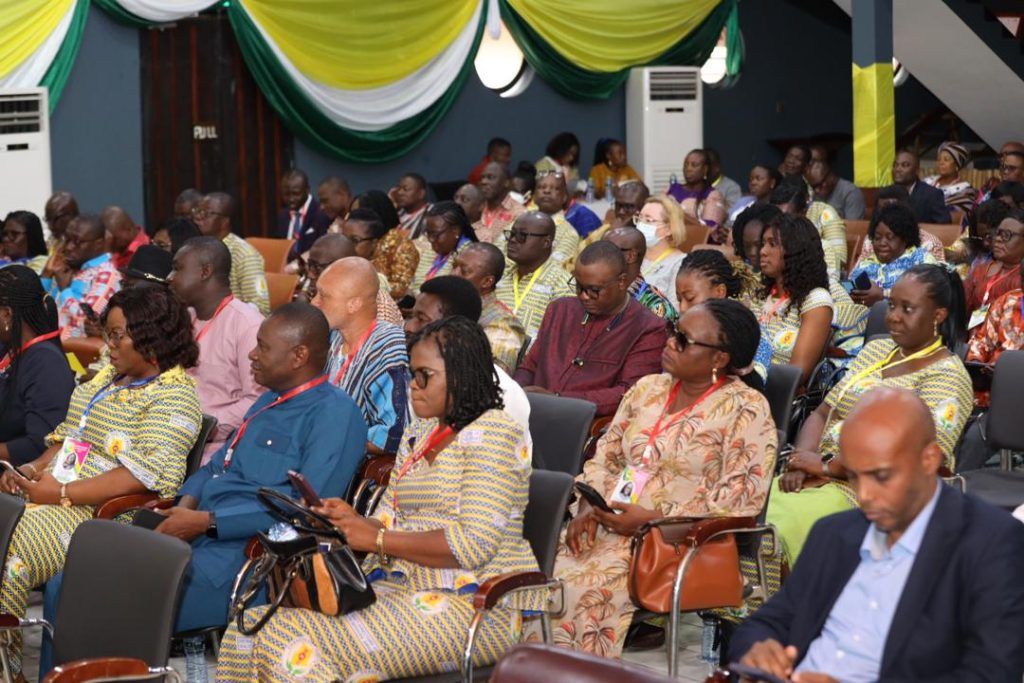By Ernest Nutsugah
Accra, Aug. 22, GNA – Dr Patrick Kuma Aboagye, Director General, Ghana Health Service (GHS), says the Service will continue to provide adequate resources and ensure essential medicines and equipment are available at all levels of health care.
He said there will be increased investment in health information systems and other digital innovations also to enhance health care delivery across the country.
Dr Aboagye was speaking at the opening session of the 31st Annual General Conference of District Directors of Health Service (DDHS) Group at Ada in the Greater Region.

Some 261 District Health Directors converged for the four-day conference on the theme, “Accelerating Towards Universal Health Coverage (UHC) With A Strengthened Primary Health Care Through Networks of Practice (NoP) Approach: The Role of DDHS And Stakeholders”.
NoP is explained as a strategy, which among other things, focuses on establishing “interconnected health facilities, professionals, and communities to deliver comprehensive and continuous health care.”
Mr Aboagye, in his address, emphasised the role of District Health Directors in health care delivery, stating that GHS was “fully committed” to supporting the implementation of the NoP concept, across the country.
“We recognise that this [NoP] requires not only the right policies but also the provision of adequate resources—human, financial, and infrastructural.
“…We also understand the importance of technology in modern health care delivery. Therefore, we are committed to investing in health information systems that facilitate real-time data sharing, telemedicine, and other digital health innovations that can strengthen NoP,” he stated.
The Director General acknowledged challenges in the health system and called for stakeholder collaboration and support from the DDHS Group, to help address the same.
“You are the change agents who can inspire and mobilise your teams to embrace this approach and make it a success. I encourage you, as the DDHS Group, to take ownership of this initiative.
“Be proactive in engaging with your communities, collaborating with other health professionals, and seeking innovative solutions to the challenges you face,” Dr Aboagye told the directors and praised their efforts in the planning and implementation of health programmes in the country.
Dr. Justice Thomas Sevugu, National Chairman of DDHS Group, highlighted aspects of their activities and called for “innovation, accountability, and a relentless pursuit of quality,” among members.
He said the group, among other things, was focused on capacity building and development of members, collaboration and teamwork, as well as partnerships and funding for public health.
To that end, he urged the government to increase funding for health services and to prioritise implementation of the NoP policy.
He also appealed to development partners to provide technical and financial assistance in that regard.
In her address, Dr Akosua Agyeiwaa Owusu-Sarpong, Greater Accra Regional Director of Health Service, highlighted efforts the country was making to attain Universal Health Coverage (UHC).
She believed the forum would generate “resolutions and commendations” to enhance the implementation of NoP in various districts.
Some topics tabled for discussion at the conference include: “Approaches to Achieving Universal Health Coverage: The Role of Development Partners”, “Strategies for Improving Immunisation Coverage,” and “Improving Sanitation in Health Facilities”.
The DDHS will also adopt a revised constitution, review welfare policies, and audit reports in addition to other engagements.
GNA